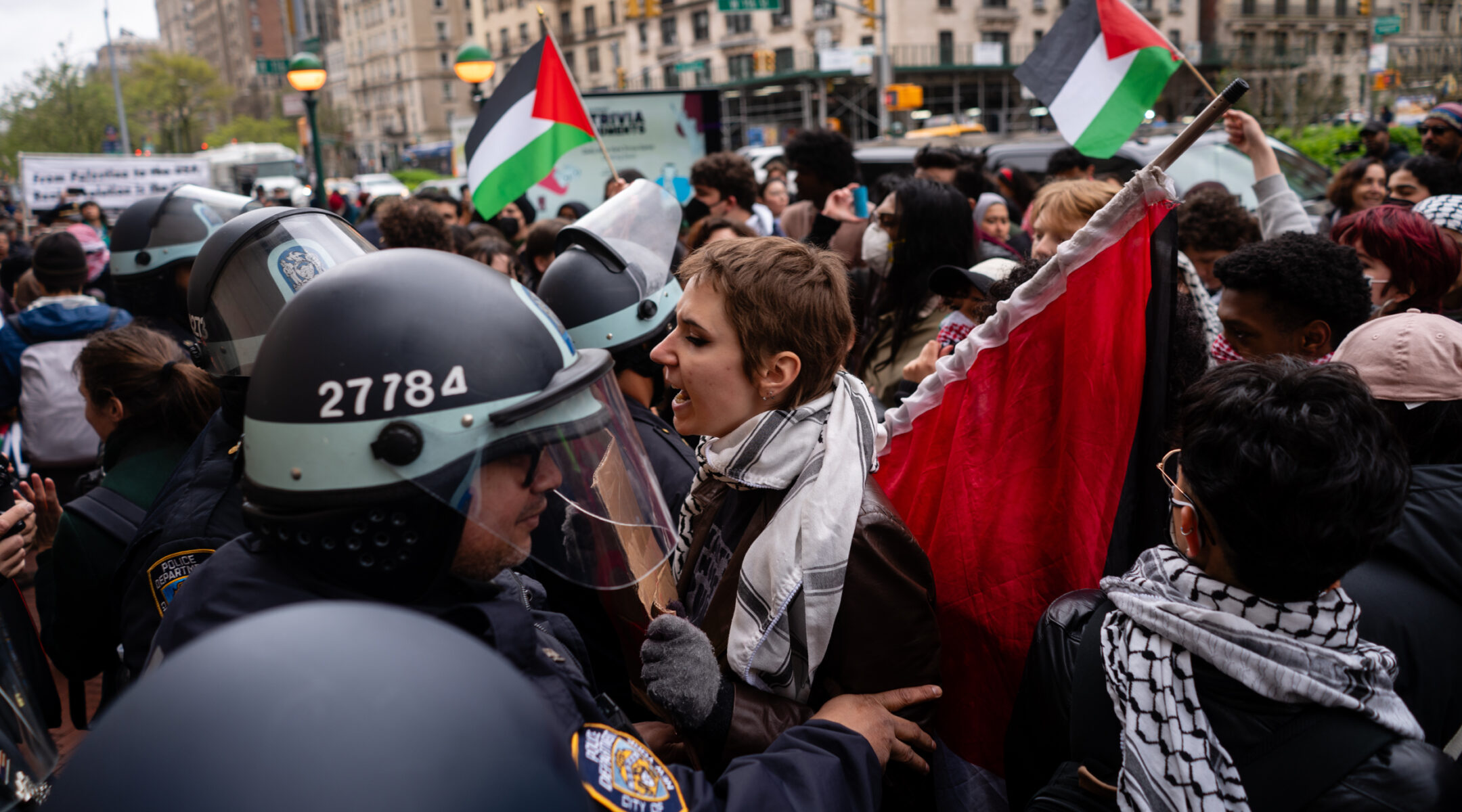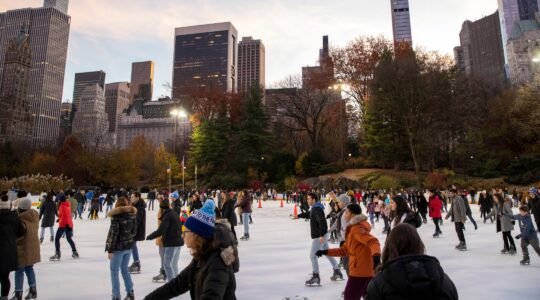Columbia University restricted access to its campus on Monday, a sign that the university is girding for a renewal of anti-Israel student protests as the fall semester is set to begin.
The university’s chief operating officer, Cas Holloway, said in a Friday statement that the campus would effectively be closed to members of the public starting on Monday. The official first day of classes is Sept. 3, though some schools’ orientation activities begin this week.
“This change is intended to keep our community safe given reports of potential disruptions,” Holloway said. “We are particularly concerned about non-affiliates who may not have the best interests of the Columbia community in mind.”
The restrictions will remain in place until further notice, Holloway said.
Columbia was an epicenter of the pro-Palestinian student protest movement last academic year, particularly at the end of the spring semester, as a protest encampment on campus set off a nationwide movement. Hundreds of students were arrested, particularly after protesters occupied a university building. Jewish students said the encampment created a hostile and antisemitic atmosphere.
Columbia began restricting entry to the campus soon after the outbreak of the Israel-Hamas war on Oct. 7. In the spring, the campus was closed off and surrounded by police, and Columbia canceled its main commencement ceremony.
While the protests were led by students, people unconnected with Columbia played a role in the unrest. When police cleared protesters out of the occupied building, more than a quarter of the 112 people arrested were neither students nor faculty.
Now, only those holding Columbia IDs and pre-registered guests may access the campus from a limited number of entry points.
In addition to the entry restrictions, Columbia is considering giving school security officers the power to arrest protesters, according to the Wall Street Journal. The New York chapter of the Council on American-Islamic Relations condemned the proposed move in a Monday statement, claiming its purpose was “to silence dissent.”
Eden Yadegar, a Jewish incoming senior at Columbia, said the entry restrictions were “a good-faith attempt at minimizing disruption, however I think it’s frankly naive.”
Student protesters could still sneak outside activists onto campus or bring them in as guests, said Yadegar, who was the president of the campus group Students Supporting Israel last year and will be on the group’s board in the fall. The restrictions also will not address off-campus protesters, who regularly gathered outside the campus gates last semester.
Yadegar wants to see the school enforce its disciplinary policies to tamp down and discourage protests that violated school rules, and get at what she called the “root of the problem.”
“Columbia has a real accountability problem. They have proven to us time and time again that they simply will not demand accountability for students and professors who repeatedly violate school policy,” Yadegar said, adding that protesters “have been empowered by the university’s inaction.”
Columbia’s Hillel and Chabad chapters did not respond to requests for comment. The Hillel building is also restricted to Columbia ID holders.
The university had opened the campus to the public in mid-July, but disruptive activism has continued over the summer. Last week, vandals defaced Holloway’s apartment building, splattering red paint around the entrance and painting inverted red triangles, a Hamas symbol, on its facade. The vandals also smashed a glass door, put up posters attacking Holloway and released insects inside the building, according to the New York Post.
Also last week, three Columbia administrators resigned after exchanging a series of derisive text messages that were seen as antisemitic during a panel on campus Jewish life.
The student protesters have vowed to escalate their activities going forward.
In a statement last week, the student coalition leading the protests, Columbia University Apartheid Divest, hailed the Oct. 7 invasion of Israel and unrest in Bangladesh as models, and vowed to “continue to escalate until the empire crumbles.”
“We are Westerners fighting for the total eradication of Western civilization,” the group said.
The New York Jewish Week brings you the stories behind the headlines, keeping you connected to Jewish life in New York. Help sustain the reporting you trust by donating today.





